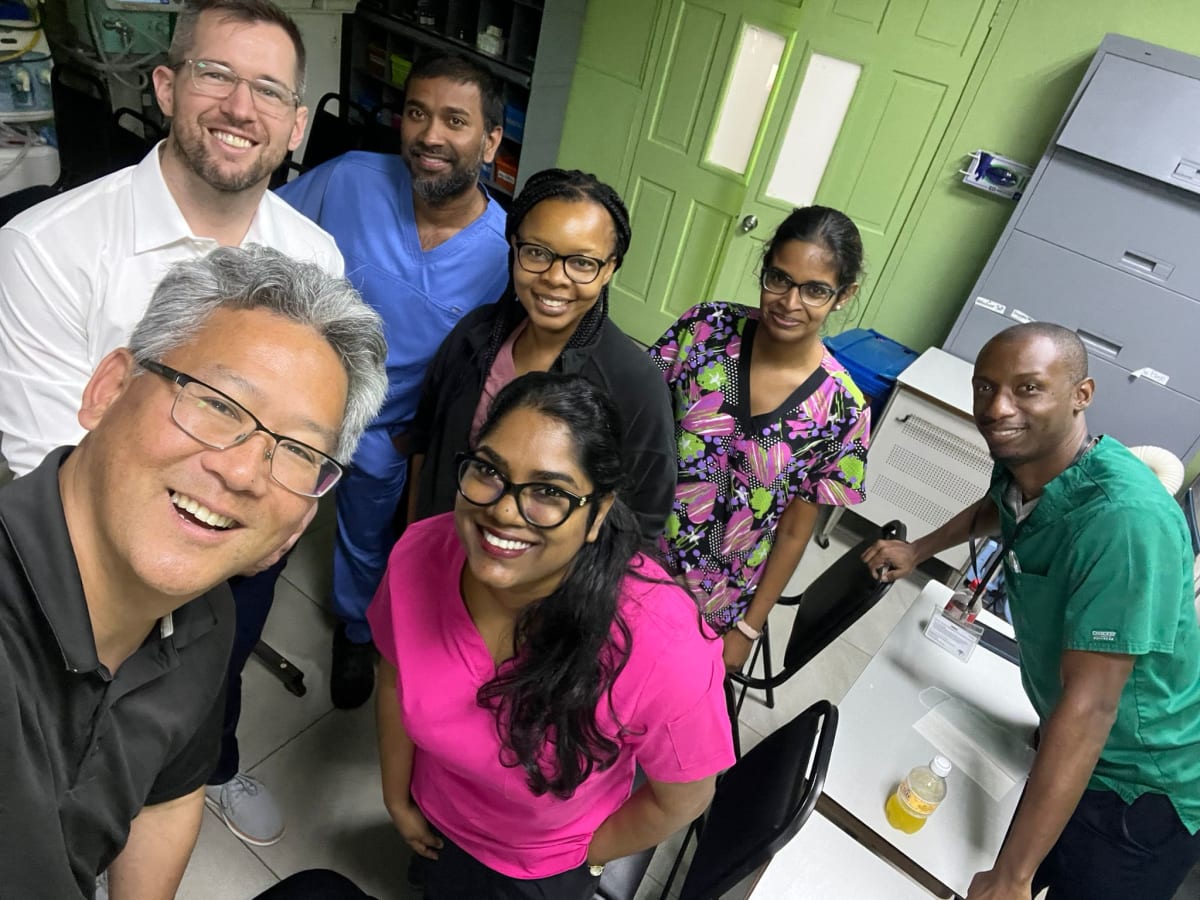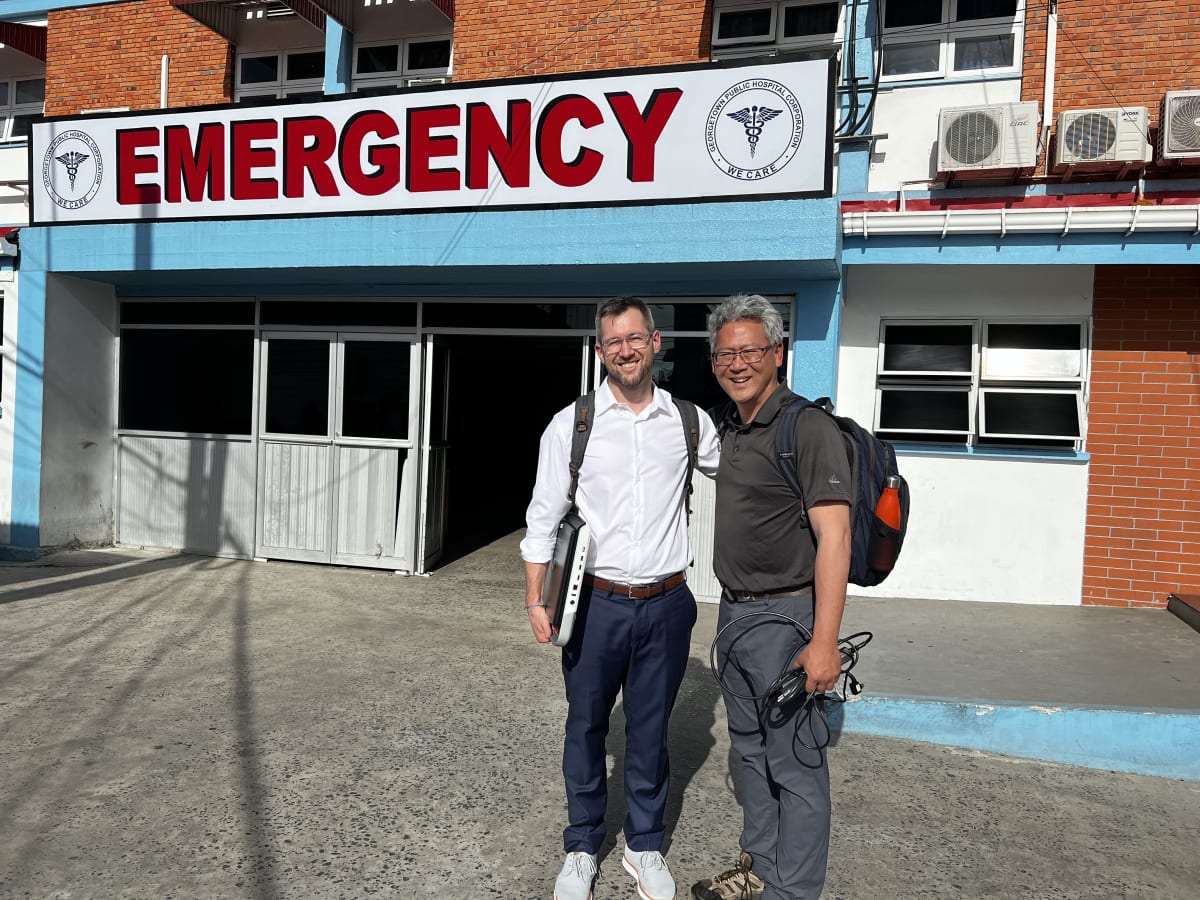Our project aims to train Pediatric Critical Care physicians at Georgetown Public Hospital Corporation (GPHC) in Guyana in the use of point of care ultrasound (PoCUS). Prior to going to Guyana, we will implement an online didactic curriculum from the Global Ultrasound Institute (GUSI), which will include modules in basic ultrasound fundamentals, e-FAST, cardiac, lungs, and ultrasound guided central line placement. All trainees will be expected to complete these initial modules prior to the workshop. While in-country, our workshop will include an initial “boot camp” that will review PoCUS applications specific to the Critical Care physician’s needs. We will continue the project with direct-observation and hand-on live patient sessions with each faculty trainee. Our team’s goal is to train Pediatric Critical Care physicians in PoCUS to a level of proficiency and competency where they themselves will become institutional PoCUS “Champions” and act as mentors and teachers for future faculty and trainees.
Following the in-person workshop in Guyana, the project will continue longitudinally with regular remote instructional sessions in the form of monthly tape review sessions. Additionally, we will be utilizing The Butterfly Ultrasound system as our platform for capturing images, image storage and image review.
I think there will be two beneficiaries to this project. First, will be the physicians in the critical care environment. They see the sickest of children and having PoCUS in their medical skill set, it can give them the tools to help this specific population. They will be able to provide real time assessments and decisions without the challenges of obtaining alternative imaging.
The second beneficiary is the children. Having caretakers and practitioners who are well-versed in point of care ultrasound can only help and possibly make a difference in their immediate care.
This population was chosen because the population age directly correlates with our own current practices and population in the states. We have previously trained similar pediatric physicians and have been using PoCUS on children of similar ages so the skill and education would be easily transferable.
The longitudinal aspect of the project is unique and meaningful. The initial workshop is meant to set the table and start from a standardized point in hopes to build and expand the PoCUS skill set. The Faculty Trainees will benefit from the initial asynchronous module work as it will be the most comprehensive, flexible and respectful of their busy schedule. Additionally, the modules will be available to them even after our train in completed so they will have the opportunity to review and learn different applications.
The in-country hands on sessions will further develop their PoCUS skill set in hopes to give them the tools and confidence to perform scans independently. However, following the end of the workshop, routine remote image review aims to maintain quality, education, fundamental understanding with each trainee's scan. So the longitudinal aspect gives trainees ongoing touch points with instructors for continual improvement and understanding.
Additionally, we will be tracking each learners progress until they meet competency in each application. We will have available multiple faculty members from Northwell Health, who have extensive experience in performing and teaching PoCUS to aid in image review and ongoing quality assurance.








We had a unique and special opportunity to help train pediatric critical care physicians at Georgetown Public Hospital Corporation (GPHC) in Guyana in the core applications of point of care ultrasound. Thanks to the Dox Foundation, our initial educational porgram was a great success. We had several critical care, hospitalist and neonatal physicians join us. Our project will aim to establish point of care ultrasound (POCUS) as an additional skill physicians in Guyana can use to better serve their patients.
Pediatric patients ages birth to 13 years old at GPHC will benefit from our project through expedited imaging, more rapid diagnosis and ideally quicker time to treatment. POCUS allows the providing physician or a member of the team to directly obtain and interpret images, both for diagnostics as in the case of pneumonia or decreased cardiac function, or for ultrasound guided procedures such as central venous access.
The patients are the the true beneficiaries of this initiative, but the physicians providing this care also benefit from an additional skill and increased knowledge base.
Thank you Dox Foundation for supporting and believing in our project. We appreciate you.